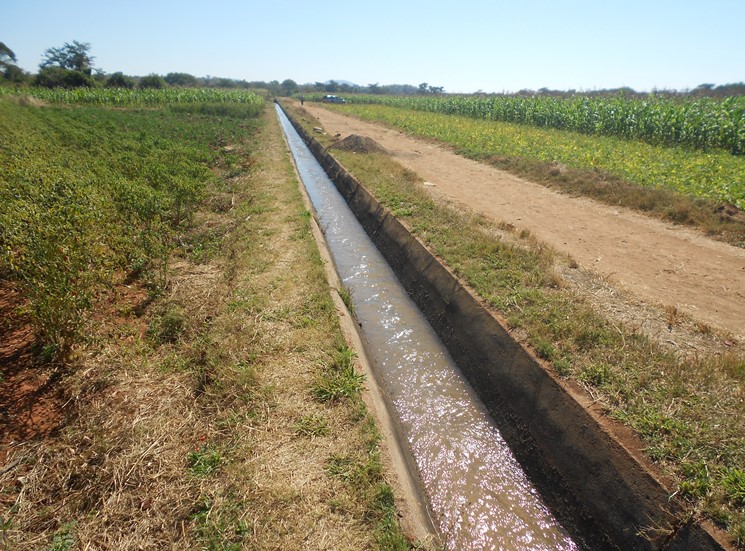After taking their good intentions to the grassroots and supporting rural communities to build dams, irrigation schemes, clinics, dip tanks and market sheds, many development agencies are fond of putting their banners at such community assets. While there might be nothing wrong with external organizations announcing their presence in particular communities, inserting banners complete with logos can have several unintended effects. For instance, some members of the community end up naming the dam or irrigation scheme after the donor or development agency. Besides undermining a sense of community ownership, a dependency syndrome kicks in such that if something very small breaks down at the dam or irrigation scheme, communities will expect solutions from the development agency.

Banners as expressions of power over local leadership and indigenous knowledge
When an NGO puts its banner at the dam or irrigation scheme that it helped build, it gives the impression that nothing existed before the development organization came into the community. Yet many communities have thrived on indigenous knowledge and local coping strategies that cannot be expressed on a banner. More importantly, almost every African community is under some form of leadership like a Chief or local authority. If at all a banner is necessary, it should be of the local chiefdom, not a development organization. In addition to banners, some development agencies divide communities into area development programs without realizing that doing so also divides community knowledge which has functioned in a fluid and inclusive manner for decades. Rivers and mountain ranges have traditionally been used to create artificial boundaries between chiefdoms but knowledge was deliberately kept fluid to enhance relationality and inter-dependence.
From documentation to community knowledge centres
Many development organizations have conducted several researches and packaged information into books and documentaries that are not easily accessible to community members. While documentation is commendable, development organizations could consider adding more value by establishing community knowledge centres where communities can continue to reflect and capture their experiences for sharing with the whole world. Through community knowledge centres, communities can continuously reflect on how they are losing their indigenous knowledge, identity and food systems including how indigenous food is being out-competed by conventional agriculture.
Ideas on piloting some interventions should come from communities embedding their own contextually-informed frameworks. Farmers should be assisted to think of something they can do together. Likewise, studies by development organizations, research institutions and universities should surface opportunities and threats from conventional agriculture in communities. Such evidence can be deepened through dialogue where local people discuss questions like what has happened to our environment and breeds over the past 10 years? How can we exploit emerging opportunities in the face of fast-changing industrial processing? Meticulous mapping can produce a framework that can assist in co-creating a way forward based on viable community models.
The curse of fragmented interventions
Fragmentation among interventions by development agencies and government prevents them from being taken seriously by communities. If well-resourced institutions cannot coordinate themselves, how do they expect poor communities to coordinate and organize their own production and stay connected with the market? Several African communities that have enormous potential are becoming increasingly disappointed with dishonest development partners. Sometimes NGOs give themselves permission to speak to funders on behalf of communities when, ideally, they should just help communities to consolidate their voices. The absence of consolidated approaches to community development is seen in how governments bring their own version of sustainable agriculture, some NGOs bring food aid and the private sector brings contract farming in the same community. Local authorities like Rural District Councils and municipalities also bring their own plans to the same communities. As a result, communities end up without a coherent framework around their livelihoods. As if that is not enough, in most cases, development agencies rush to phase out projects before integrating their interventions into community ecosystems that are left without a budget.
charles@knowledgetransafrica.com / charles@emkambo.co.zw /
info@knowledgetransafrica.com
Website: www.emkambo.co.zw / www.knowledgetransafrica.com
Mobile: 0772 137 717/ 0774 430 309/0712737430
